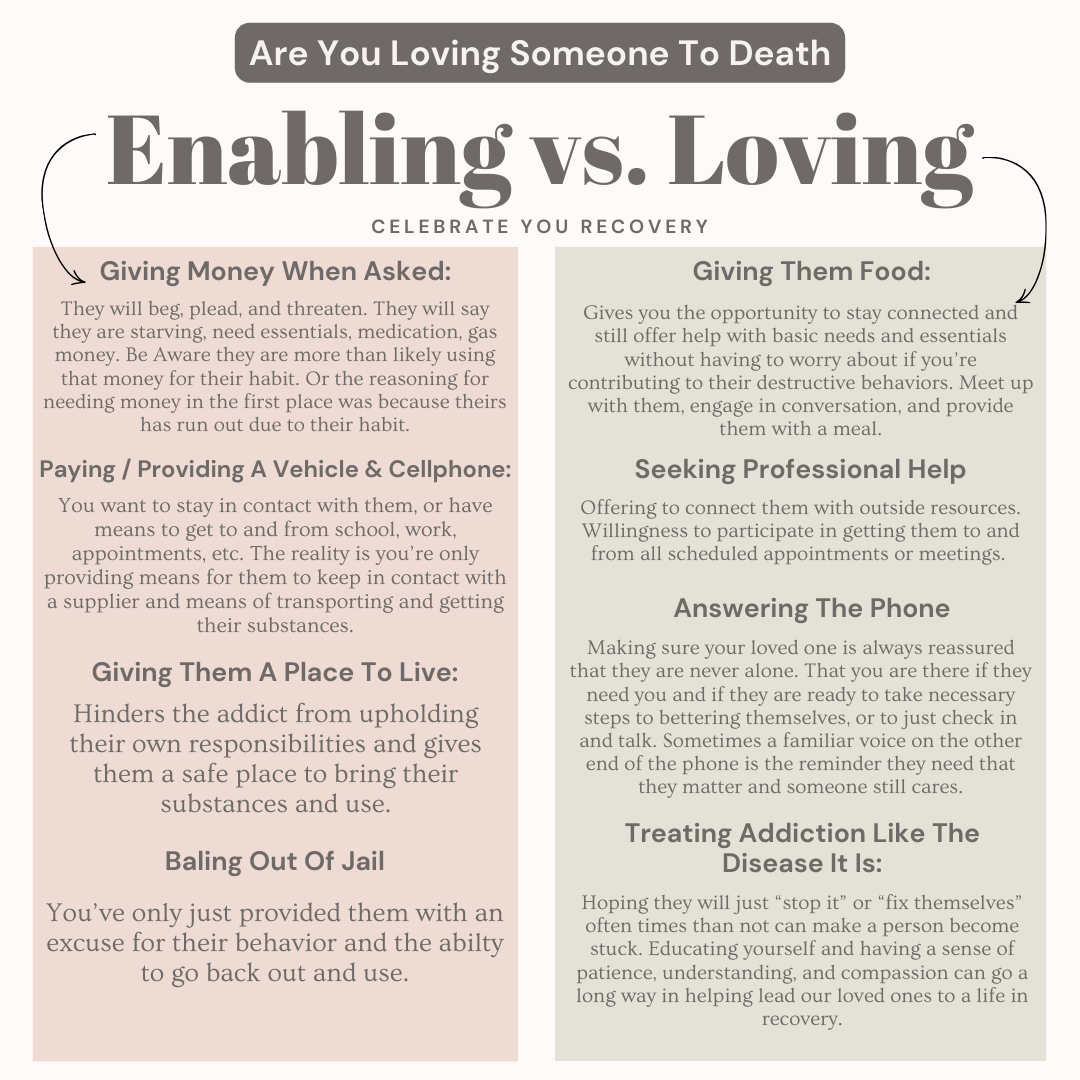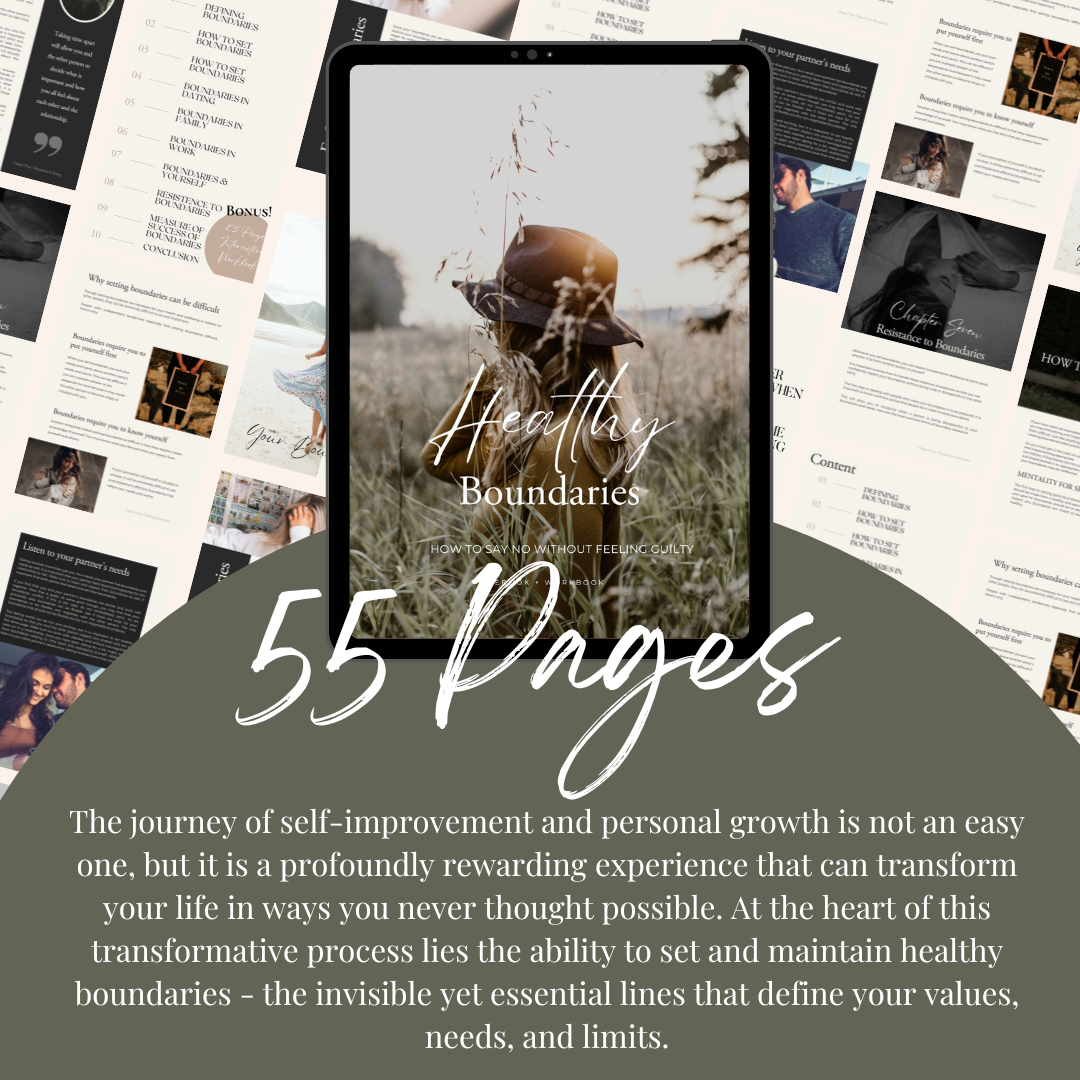The Unwavering Truth
“I’m So Sorry I Couldn’t Save You”
Recovery is challenging. Not only for the person going through it, but also for the loved ones who stand by their side. I've learned a powerful lesson on this path: you can't change or control someone else when it comes to their recovery.
Enabling, at its core, involves providing aid that supports the addictive behaviors, even if unintentionally.
This could look like making excuses for their actions, bailing them out of legal trouble, or giving them money that ends up funding their addiction. While it may provide temporary relief, enabling ultimately robs the individual of the opportunity to face the consequences of their choices and seek meaningful change.
In contrast, true love requires the courage to let go, set boundaries, and allow your loved one to experience the full weight of their addiction. This "tough love" approach, as it's often called, is undoubtedly one of the hardest things a family can do. But, it's also one of the most powerful ways to inspire real potentially long-term recovery.
I will forever vividly remember all the times my addiction forced both of my parents to show me tough love. In those moments, it felt more like the cruelest punishment. Being kicked out of their house, my funds being cut off, being without a vehicle, my dad pressing charges on me for stealing and pawning off his belongings…
I hated them. Now I know and think much differently. I know wholeheartedly, it was all for the dire need and hope that it would somehow help save my life.
I reflect back and put myself in their shoes and the amount of strength it must of taken to have to let me go, to set boundaries, and stick to them, and hope and pray that I would somehow get myself out of that shit. I don’t know if I could ever do the same, if I was ever in their position.
They didn’t ask to live that way. They weren’t the ones with the addiction, but they lived in the misery of it as if they were. For my sake. And, for a very long time. Having their stuff stolen, having to lock everything up or hide it, having to walk on eggshells in their very own home. I hated being consumed by my own chaos, so no doubt they weren’t having a good time either.
Once I had found my way to a life of sobriety, I was seated on the other side. My significant other at the time, had revealed to me that he was struggling with addiction, as well. I found myself in a dangerous situation. Jeopardizing my own well-being and sobriety for the sake of keeping the relationship, and wanting to help him. It was extremely difficult to stand my ground and be assertive with doing the things I knew I needed to do.
It's natural to want the best for the person you love, especially when you see them struggling with addiction, mental health, or any other underlying condition. We may find ourselves offering advice, making plans for them, or even imposing our well-intentioned ideas on how they should recover. But it's crucial to realize that this approach is often counterproductive. Here are some valuable insights I've gained along the way:
“If an addict is happy with you, you’re probably enabling. If an addict is angry with you, you’re probably trying to save their life.” -Tiffany Jenkins
Enabling Behaviors:
Covering up or making excuses for their addictive behaviors
Bailing them out of legal or financial trouble
Providing money, housing, or other resources that could be used to fuel their addiction
Taking on responsibilities that the addict should be handling themselves
Trying to "fix" the problem for them rather than encouraging them to seek help
Loving Behaviors:
Refusing to participate in or enable their addictive behaviors
Setting clear boundaries and sticking to them, even when it's difficult
Encouraging them to take accountability for their actions and the consequences
Connecting them with professional addiction treatment resources
Offering emotional support and unconditional love, while still allowing them to experience the reality of their situation
1. Understanding Powerlessness: The first step in supporting someone in recovery is acknowledging that we are powerless over their choices. Their recovery is a path they must navigate, and it's not something we can control. This is a tough truth to accept, but it's essential.
2. Respecting Autonomy: Every individual's recovery journey is unique. What worked for one person might not work for another. It's crucial to respect their autonomy and decisions, even if they differ from what we might have chosen for them.
3. Offering Support, Not Solutions: Instead of trying to control their recovery, offer your unwavering support. Listen, be there for them, and encourage them to seek professional help or attend support groups. Be a source of love and encouragement, rather than trying to be their savior.
4. Self-Care Matters: Caring for someone in recovery can be emotionally taxing. It's vital to prioritize self-care and seek your support network as well. Remember, you can't pour from an empty cup.
5. Setting Boundaries: Establishing healthy boundaries is crucial. While you can support your loved one, you should also protect your emotional and mental well-being. Boundaries are not a sign of neglect but a way to maintain your own health.
The key is to shift the focus from trying to control the addict's behavior, to taking care of yourself. Seek out your own support system, whether that's through therapy, support groups, or trusted friends and family members.
Remember, that you cannot force someone into recovery - they have to make that choice for themselves. But, by refusing to enable, and instead offering unwavering love and encouragement, you create the space for your loved one to hit rock bottom and find the motivation to seek help. It's a painful process, but one that's necessary for true, lasting change.
The realization that we can't change or control someone else's recovery is not a sign of weakness. It's a testament to our love and respect for their journey.
Recovery is a deeply personal process, and each person must find their way at their own pace. Our role is to stand by them, offer our love, and let them take the lead in their recovery. It's a difficult lesson to learn, but when we embrace it, we open the door to a more supportive and authentic relationship with our loved ones .
Addiction is a devastating disease that impacts the entire family. But by learning to distinguish between enabling and loving, you can play a vital role in your loved one's recovery journey. It won't be easy, but your courage and commitment just might be the catalyst they need to reclaim their life.
Additional Tools & Helpful Resources:
This comprehensive 55 page eBook and 20 + page workbook will teach you how to set clear, healthy boundaries in all your relationships. Developed by experts, this interactive guide provides practical exercises and strategies to:
Identify your personal boundaries and communicate them effectively
Recognize when your boundaries are being crossed and respond assertively
Maintain boundaries with family, friends, romantic partners, and colleagues
Overcome guilt, fear, and other obstacles to setting boundaries
Develop self-awareness, self-respect, and healthy interdependence
Whether you struggle with being too passive or too aggressive, this resource will empower you to take control of your life and build more fulfilling, balanced relationships. Start your journey towards greater personal freedom and stronger connections today.







